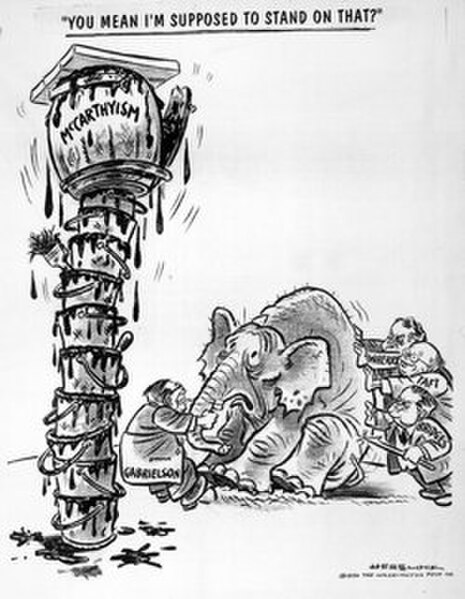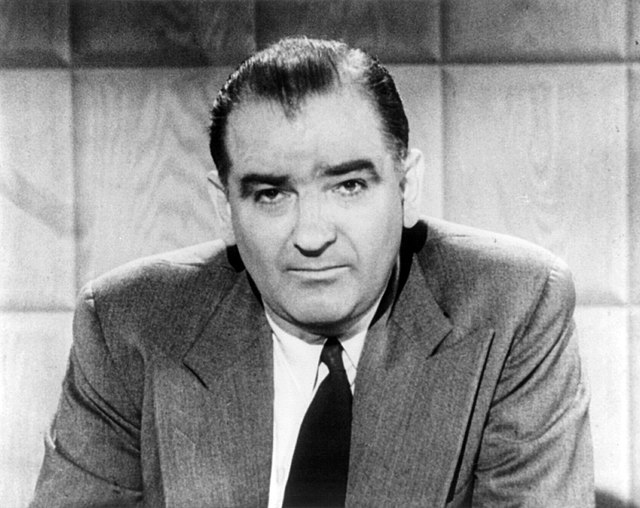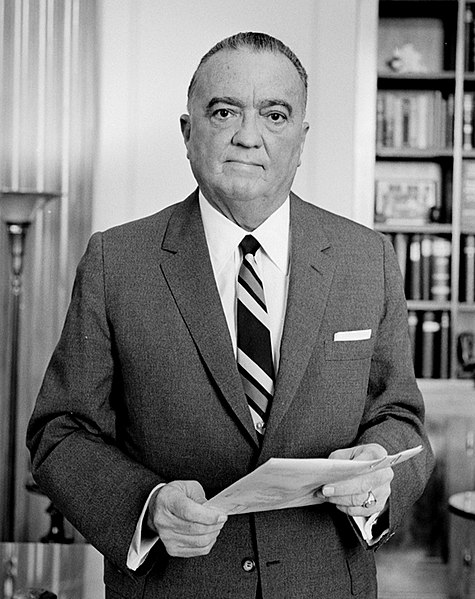The Lavender Scare was a moral panic about homosexual people in the United States government which led to their mass dismissal from government service during the mid-20th century. It contributed to and paralleled the anti-communist campaign which is known as McCarthyism and the Second Red Scare. Gay men and lesbians were said to be national security risks and communist sympathizers, which led to the call to remove them from state employment. It was thought that gay people were more susceptible to being manipulated, which could pose a threat to the country. Lesbians were at less risk of persecution than gay men, but some lesbians were interrogated or lost their jobs.
Joseph McCarthy and Roy Cohn during the Army–McCarthy hearings
McCarthyism, also known as the Second Red Scare, was the political repression and persecution of left-wing individuals and a campaign spreading fear of alleged communist and Soviet influence on American institutions and of Soviet espionage in the United States during the late 1940s through the 1950s. After the mid-1950s, U.S. Senator Joseph McCarthy, who had spearheaded the campaign, gradually lost his public popularity and credibility after several of his accusations were found to be false. The U.S. Supreme Court under Chief Justice Earl Warren made a series of rulings on civil and political rights that overturned several key laws and legislative directives, and helped bring an end to the Second Red Scare. Historians have suggested since the 1980s that as McCarthy's involvement was less central than that of others, a different and more accurate term should be used instead that more accurately conveys the breadth of the phenomenon, and that the term McCarthyism is, in the modern day, outdated. Ellen Schrecker has suggested that Hooverism, after FBI Head J. Edgar Hoover, is more appropriate.

One of the earliest uses of the term McCarthyism was in a cartoon by Herbert Block ("Herblock"), published in The Washington Post, March 29, 1950.
Senator Joseph McCarthy
Executive Order 9835, signed by President Truman in 1947
J. Edgar Hoover in 1961





